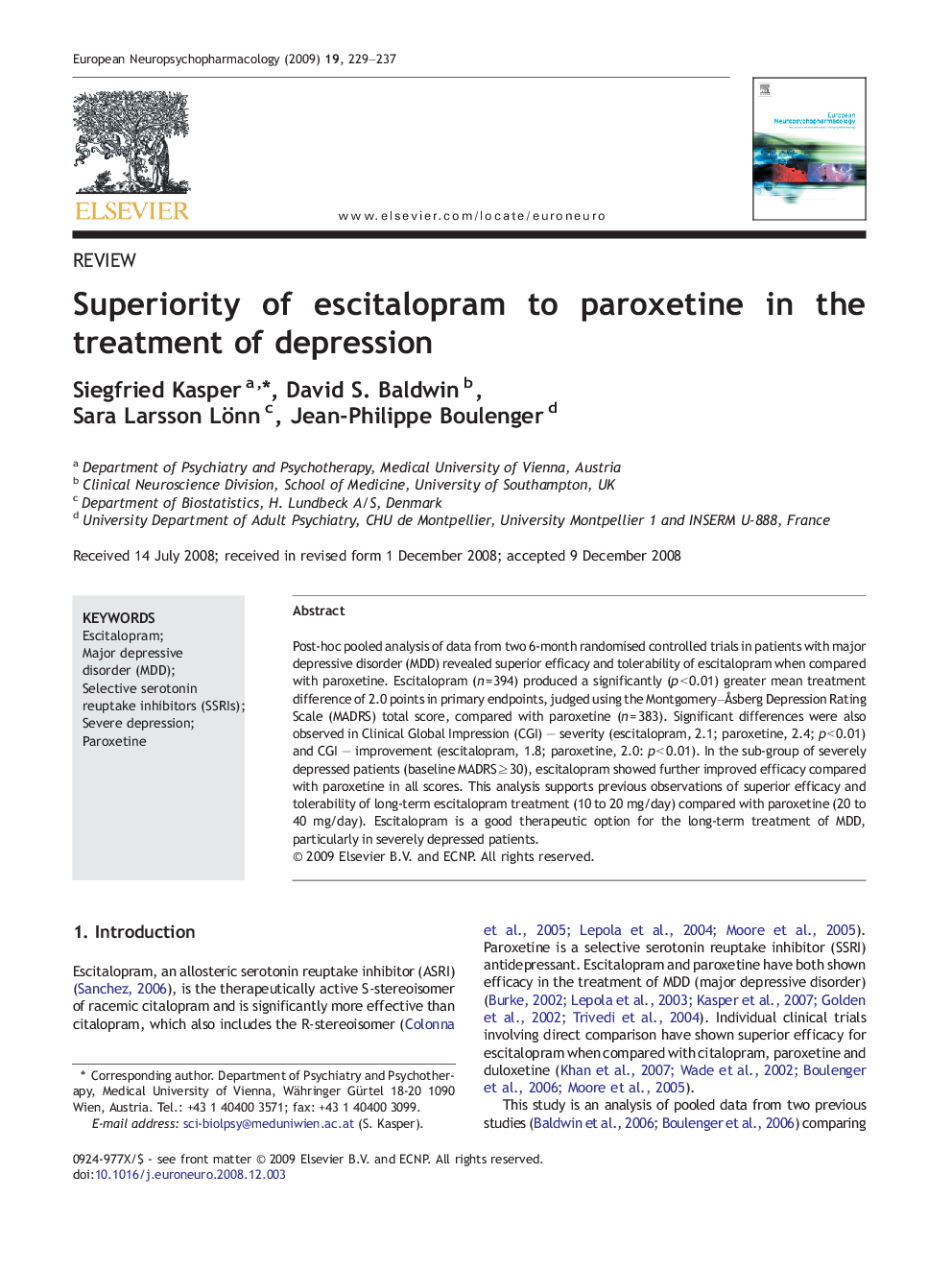| Article ID | Journal | Published Year | Pages | File Type |
|---|---|---|---|---|
| 319019 | European Neuropsychopharmacology | 2009 | 9 Pages |
Post-hoc pooled analysis of data from two 6-month randomised controlled trials in patients with major depressive disorder (MDD) revealed superior efficacy and tolerability of escitalopram when compared with paroxetine. Escitalopram (n = 394) produced a significantly (p < 0.01) greater mean treatment difference of 2.0 points in primary endpoints, judged using the Montgomery–Åsberg Depression Rating Scale (MADRS) total score, compared with paroxetine (n = 383). Significant differences were also observed in Clinical Global Impression (CGI) — severity (escitalopram, 2.1; paroxetine, 2.4; p < 0.01) and CGI — improvement (escitalopram, 1.8; paroxetine, 2.0: p < 0.01). In the sub-group of severely depressed patients (baseline MADRS ≥ 30), escitalopram showed further improved efficacy compared with paroxetine in all scores. This analysis supports previous observations of superior efficacy and tolerability of long-term escitalopram treatment (10 to 20 mg/day) compared with paroxetine (20 to 40 mg/day). Escitalopram is a good therapeutic option for the long-term treatment of MDD, particularly in severely depressed patients.
